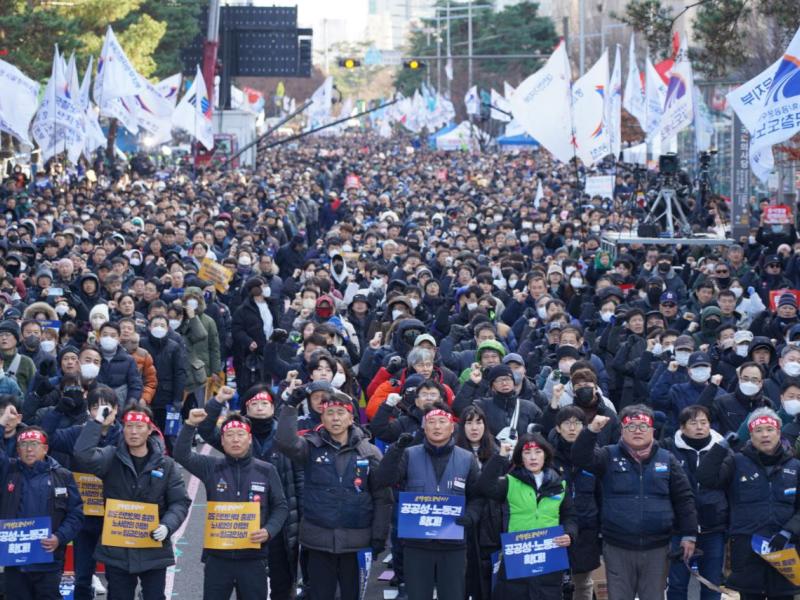Three global shipping organisations today issued guidance to their members on the risks posed to ships’ crews calling in countries affected by the Ebola virus.
The ICS (International Chamber of Shipping), IMEC (International Maritime Employers’ Council), and the ITF (International Transport Workers’ Federation) urgently advise that on all such vessels:
1. The Master should ensure that the crew are aware of the risks, how the virus can be spread and how to reduce the risk.
2. The ISPS requirements on ensuring that unauthorised personnel do not board the vessel should be strictly enforced throughout the duration of the vessel being in port.
3. The Master should give careful consideration to granting any shore leave whilst in impacted ports.
4. The shipowner/operator should avoid making crew changes in the ports of an affected country.
5. After departure the crew should be aware of the symptoms and report any occurring symptoms immediately to the person in charge of medical care.
The advice is supplemented with information from the World Health Organization on the virus (available here www.who.int/mediacentre/factsheets/fs103/en)
A spokesperson for the three organisations commented: “Everyone is deeply concerned for those suffering from the Ebola epidemic and supportive of a coordinated world response to help them. We particularly applaud all those medical staff who are risking their lives to help. In the meantime we want to make sure that those in the world shipping industry play our part in ensuring the safety of crews visiting the affected countries, and minimising the risk of the virus spreading further.”
ENDS
For more details please contact
ICS, Natalie Shaw. Email: Natalie.Shaw@ics-shipping.org. Tel: +44 (0)20 7090 1466. Mobile: +44 (0)7973558848
IMEC, Giles Heimann. Email: giles.heimann@imec.org.uk. Tel: +44 (0) 20 7680 8680. Mobile: +44 (0) 7825 515 465
ITF, Sam Dawson. Email: dawson_sam@itf.org.uk. Tel: +44 (0)20 7940 9260
The guidance being circulated by the three organisations is as follows:
URGENT COMMUNICATION ON THE RISK OF THE EBOLA VIRUS
ITF, IMEC and ICS-ISF have been in communication regarding the serious nature of the outbreak of the Ebola virus in West Africa. As such, we have agreed that strong recommendations should be made to our members with vessels calling into countries which have been impacted by the virus. Members are asked to consider these recommendations internally and pass such on to their vessels as a matter of some urgency:
1. The Master should ensure that the crew are aware of the risks, how the virus can be spread and how to reduce the risk.
2. The ISPS requirements on ensuring that unauthorised personnel do not board the vessel should be strictly enforced throughout the duration of the vessel being in port.
3. The Master should give careful consideration to granting any shore leave whilst in impacted ports.
4. The shipowner/operator should avoid making crew changes in the ports of an affected country.
5. After departure the crew should be aware of the symptoms and report any occurring symptoms immediately to the person in charge of medical care.
The following information, produced by the World Health Organisation, may assist in the education of on-board personnel:
Ebola is introduced into the human population through close contact with the blood, secretions, organs or other bodily fluids of infected animals. In Africa, infection has been documented through the handling of infected chimpanzees, gorillas, fruit bats, monkeys, forest antelope and porcupines found ill or dead or in the rainforest.
Ebola then spreads in the community through human-to-human transmission, with infection resulting from direct contact (through broken skin or mucous membranes) with the blood, secretions, organs or other bodily fluids of infected people, and indirect contact with environments contaminated with such fluids. Burial ceremonies in which mourners have direct contact with the body of the deceased person can also play a role in the transmission of Ebola. Men who have recovered from the disease can still transmit the virus through their semen for up to 7 weeks after recovery from illness.
Ebola is not spread through the air.
Health-care workers have frequently been infected while treating patients with suspected or confirmed EVD. This has occurred through close contact with patients when infection control precautions are not strictly practiced.
Among workers in contact with monkeys or pigs infected with Reston ebolavirus, several infections have been documented in people who were clinically asymptomatic. Thus, RESTV appears less capable of causing disease in humans than other Ebola species.
However, the only available evidence available comes from healthy adult males. It would be premature to extrapolate the health effects of the virus to all population groups, such as immuno-compromised persons, persons with underlying medical conditions, pregnant women and children. More studies of RESTV are needed before definitive conclusions can be drawn about the pathogenicity and virulence of this virus in humans.
Signs and symptoms
EVD is a severe acute viral illness often characterized by the sudden onset of fever, intense weakness, muscle pain, headache and sore throat. This is followed by vomiting, diarrhoea, rash, impaired kidney and liver function, and in some cases, both internal and external bleeding. Laboratory findings include low white blood cell and platelet counts and elevated liver enzymes.
People are infectious as long as their blood and secretions contain the virus. Ebola virus was isolated from semen 61 days after onset of illness in a man who was infected in a laboratory.
The incubation period, that is the time interval from infection with the virus to onset of symptoms, is 2 to 21 days.
Further information on the virus may be found at the following link:
http://www.who.int/mediacentre/factsheets/fs103/en/




Post new comment